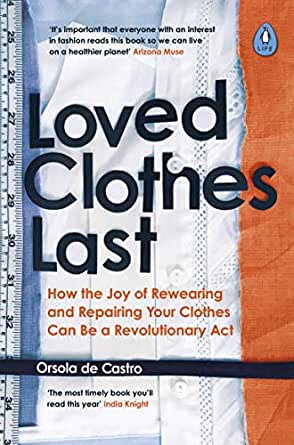Is it really possible for Vogue magazine, the temple to fashion, to question ‘fashion’?
It seems it can.
How to Quit Fast Fashion, According to Aja Barber
“The future looks both bright and bleak,” Aja Barber writes in her first book, Consumed, as she reminds us that it’s not too late to create an equitable and sustainable fashion industry. But we need to act fast. True to the form that has made Barber’s Instagram account a must-follow for anyone interested in sustainable fashion, her book is not here to pretend the status quo is working for any of us. It’s here to jolt us into action.
Without question, the fashion industry is one of the leading culprits of greenhouse gas emissions (producing 10% of humanity’s carbon emissions, as reported by Business Insider), generating tons of waste, and allowing worker exploitation. In the first few pages of her book, now available in the U.S., Barber makes a point of asking fast-fashion CEOs within the first few pages to imagine what the industry could look like if they were willing to place humanity above profits. Barber remains skeptical of that ever happening, but she’s not going to stop asking.
How to Quit Fast Fashion, According to Aja Barber | Vogue
Repairing Your Clothes Can Be Revolutionary, Here’s How To Do It Right

Orsola de Castro, co-founder of Fashion Revolution and author of Loved Clothes Last: How The Joy Of Rewearing And Repairing Your Clothes Can Be A Revolutionary Act (Penguin, 2021), hopes the new mood means we’ll all start taking time to repair the clothes we already have in our wardrobes, too. “There is a poetry in mending that we’ve forgotten after 30 years of hyper-availability, ” she tells Vogue over the phone from her south London home. “It’s about slowing down the system.”
Practically speaking, mending your clothes — instead of Marie Kondo-ing them when the hem of a skirt comes undone or a small hole appears in your sweater — means you’re also preventing them from ending up in landfill (less than one per cent of textiles is currently recycled into new clothing, according to the Ellen MacArthur Foundation). You’re also reducing your environmental impact, with a report from waste charity WRAP finding that extending a garment’s life by just nine months can reduce its carbon, waste and water footprints by between 20 to 30 per cent.
How To Repair Your Clothes And Make A Fashion Statement | British Vogue
